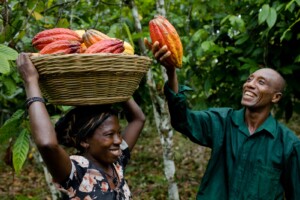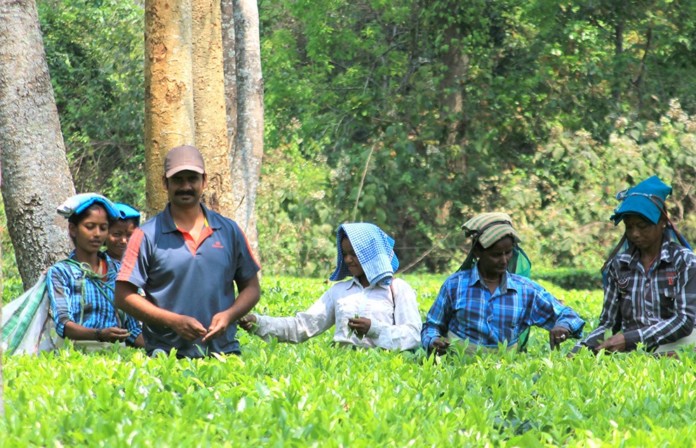A Rainforest Alliance report shows how people working in certified tea and cocoa estates have much better livelihood indicators than the others. It published its impact across the world in January 2017 titled ‘The Contribution of Rainforest Alliance Agriculture Training and Certification to Meeting the UN Sustainable Development Goals – A Summary of the Evidence’. Excerpts:
- In Tamil Nadu workers on Rainforest Alliance (RA) Certified estates received significantly higher income than those on non-certified estates, the hourly rate for overtime was higher, a higher percentage of workers had contracts and were entitled to annual paid leave, sick leave and maternity leave. Other wage and benefit variables were the same in both groups.
- On Indian tea estates, a significantly larger proportion of workers on RA Certified estates than non-certified estates reported that they experienced positive changes in occupational health. Specifically, on certified estates, 56% of female workers and 58% of male workers reported experiencing positive changes to their health; for non-certified workers, these rates were only 40% and 13% for female and male workers, respectively. Two managers of certified estates reported that the number of person-days lost to sickness had been reduced due to certification.
- Two studies in India found that RA Certified farms exhibited greater adoption of worker health and safety measures (safety training, personal protective equipment, and no-pesticide buffer zones around houses and schools.
- In India, a higher proportion of workers’ children on Rainforest Alliance Certified estates attended school, compared with children of workers on non-certified estates. Those workers were also more satisfied with the schooling than workers on non-certified estates.
The Rainforest Alliance is a global NGO that works to conserve biodiversity and ensure sustainable livelihoods by transforming land-use practices, business practices and consumer behavior. Through creative and pragmatic collaboration, it aims to rebalance the planet by building strong forests and healthy communities around the world. It conducts training, certification, and verification in 78 countries.
Global Impact
- In Colombia, coffee farm productivity on RA Certified farms was double that of
non-certified farms, and net revenue was 2.5 times higher. - In Peru, after RA certification, a coffee cooperative increased its annual production by 148 kg/ha, which led to an additional US $280 / ha in coffee net revenue for certified farms.
- In Nicaragua, annual productivity was higher on RA Certified coffee farms than on non-certified farms (1,430 kg/ha versus 872 kg/ha, respectively), as was annual gross income (US $4,256/ha versus US $2,025/ha).
- Data encompassing 220,000 cocoa farms in four countries indicate that RA Certified cocoa farms generate yields that exceed the respective national averages by 69% in Ecuador, 33% in Ghana, 15% in Côte d’Ivoire, and 27% in Indonesia.
- In Ghana, cocoa yields were significantly higher on RA Certified farms (averaging 394 kg/ha) than on uncertified farms (averaging 251 kg/ha).
- In Ghana, established certified farms averaged 774 kg/ha of dried cocoa beans, compared with
527 kg/ha on newly certified farms, 544 kg/ha on comparable non-certified farms, and 400 kg/ha across Ghana. - In Côte d’Ivoire higher annual yields on certified farms (576 kg/ha vs. 334 kg/ha).
- In Ghana and Nigeria, two studies reported that RA Certified cocoa was more profitable to farmers than non-certified cocoa, based on several standard business measures of profitability. In Ghana, the benefit/cost ratio was estimated at 1.34 for Rainforest Alliance Certified cocoa versus 1.18 for non-certified cocoa, while the internal rate of return was 54% for certified cocoa versus 30.5% for non-certified cocoa. In Nigeria, internal rate of return of 59.6% for certified cocoa (including Rainforest Alliance and three other certification systems) versus 31.3% for non-certified cocoa, based on 59% higher gross revenues and 161% higher net revenues.

Rainforest Alliance certified cocoa farmers for Magnum Icecream in Assin Akonfudi, Ghana. - In Kenya, workers on RA farms were paid 49% more than their peers on non-certified farms per quantity of tea leaf picked.
2015 SAN/Rainforest Alliance Impacts Report: http://www.rainforest-alliance.org/impact






